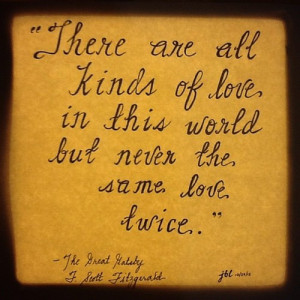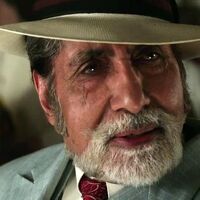Great Gatsby Quotes About Gambling
The man, the myth, the legend, Jay Gatsby is the titular hero of The Great Gatsby. Nick first comes to know him as an incredibly wealthy, mysterious man who throws lavish parties, but we eventually learn his background: a boy from humble origins who is desperate to win back the love of a rich woman, Daisy, and loses everything in his last attempt to win her over. I picked up The Great Gatsby about a week ago, the first reread of the early summer. I had not read this touchstone novel of the early 20th century for more than five years, and this time, my attentions kept returning to the exquisitely well-crafted and perceptive comments F. Scott Fitzgerald made on the smug and malicious characters of three of the main characters—Tom and Daisy Buchanan.
I was privy to the secret griefs of wild, unknown men. Most of the confidences were unsought—frequently I have feigned sleep, preoccupation, or a hostile levity when I realized by some unmistakable sign that an intimate revelation was quivering on the horizon.
Nick offers this reflection on the first page of the novel, and his words have an important foreshadowing function. The entire story that Nick is about to relate arises from his having become a confidante for two opposing men, Tom Buchanan and Jay Gatsby. The antagonism between these men has disastrous effects, and Nick finds himself caught in the middle of it. This experience explains why, as he observes in the second sentence quoted here, Nick now goes to any lengths necessary to avoid the confidences of others.
I bought a dozen volumes on banking and credit and investment securities, and they stood on my shelf in red and gold like new money from the mint, promising to unfold the shining secrets that only Midas and Morgan and Mæcenas knew.
In the first chapter, Nick describes his plan to teach himself about finance. The fact that Nick wants to start a career in finance indicates his desire for upward class mobility—a desire he shares with many of the characters and which he will come to criticize. At this point in the story, however, Nick worships at the shrine of money, a shrine that includes both mythical and historical figures. The mythological King Midas could turn anything he touched into gold. Gaius Mæcenas acted as advisor to the first emperor of Rome and a patron to poets like Horace and Virgil. And J. P. Morgan was a titan of American finance in the late 19th and early 20th centuries.
High over the city our line of yellow windows must have contributed their share of human secrecy to the casual watcher in the darkening streets, and I was him too, looking up and wondering. I was within and without, simultaneously enchanted and repelled by the inexhaustible variety of life.
In Chapter 2, Nick, Tom, and Myrtle spend time in the Buchanans’ New York apartment. In this moment it’s getting dark, and Nick imagines what people outside the apartment must see when they look up into its well-lit rooms. Nick identifies with this imaginary watcher, although he is inside the apartment. Nick’s sense of himself split between being inside and outside nicely describes his social position in the novel. Although he hangs out with wealthy people, he is not quite one of them.
I am one of the few honest people I have ever known.
Nick declares honesty to be his “cardinal virtue” at the end of Chapter 3. As readers, we should be suspicious when a narrator makes this type of claim. Nick says he’s among the most honest people he knows, but at this point in the novel the reader only has his word to go on. Although Nick hasn’t given much indication that he is an unreliable narrator, how can the reader be sure? Throughout the novel, we aren’t even sure if Nick is being honest with us. For example, he frequently expresses his contempt for Daisy, Tom, and Gatsby, yet continues to spend time with them, accept their hospitality, and even help Gatsby have an affair with Daisy. Nick’s actual honesty is a matter of interpretation left to the reader.
Great Gatsby Quotes About Gambling Money
Unlike Gatsby and Tom Buchanan, I had no girl whose disembodied face floated along the dark cornices and blinding signs, and so I drew up the girl beside me, tightening my arms. Her wan, scornful mouth smiled, and so I drew her up again closer, this time to my face.
With these words from Chapter 4, Nick distinguishes between the kind of relationship he has with Jordan and the kind of relationship Gatsby and Tom have with Daisy. Nick thinks Gatsby and Tom both idealize Daisy in ways that privilege fantasy over actuality. Instead of seeing Daisy as a physically existing person, they see her as a girl with a floating, “disembodied face.” By contrast, Nick claims to take Jordan as she actually is, without idealizing her. Perhaps because he doesn’t idealize Jordan, Nick doesn’t have the same consuming passion for her that Tom and Gatsby have for Daisy. This line suggests Nick begins a relationship with Jordan because she is literally the closest available female.
Americans, while occasionally willing to be serfs, have always been obstinate about being peasantry.

Nick writes these sardonic words in Chapter 5, where he makes one of his characteristically broad observations about American society. This particular observation appears after Nick explains how the man who originally designed Gatsby’s house wanted to have all of the neighboring cottages’ roofs thatched in the medieval European style. The neighbors refused, and Nick links this refusal to Americans’ refusal to be “peasants.” In the feudal hierarchy of the Middle Ages, peasants were actually relatively freer than serfs, the latter of whom were more like slaves. Nick’s words are therefore ironic. Americans are willing to enslave themselves to money and upward mobility (serfdom), but they’re unwilling to appear poor (peasantry).
“They’re a rotten crowd,” I shouted across the lawn. “You’re worth the whole damn bunch put together.”
I’ve always been glad I said that. It was the only compliment I ever gave him, because I disapproved of him from beginning to end.”
Nick addresses these words to Gatsby the last time he sees his neighbor alive, in Chapter 8. This moment nicely captures Nick’s ambivalent feelings about Gatsby. Even though he disapproves of Gatsby until the end, Nick still winds up taking his side. Nick feels sympathetic toward Gatsby in part because of the relative depravity and despicableness of Tom and Daisy, and also because Gatsby has no other real friends. Nick feels glad to have returned the confidence that Gatsby placed in him, even if the man has risen no higher in Nick’s estimation.

Great Gatsby Quotes About Wealth

That’s my Middle West—not the wheat of the prairies or the lost Swede towns, but the thrilling returning trains of my youth, and the street lamps and sleigh bells in the frosty dark and the shadows of holly wreaths thrown by lighted windows on the snow.
This quote appears in the final pages of the novel, when Nick expresses his nostalgia for riding the train home from school for winter breaks. Nick’s words set up a suggestion he makes later in the same paragraph, that “this has been a story of the West, after all.” Nick reminds the reader that all the main characters in his story came from the western United States, and we learn that soon after the events described in the book, he moved back home, as the East had become “haunted” for him.